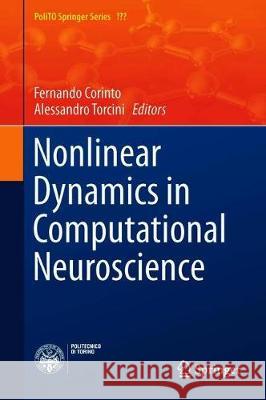Nonlinear Dynamics in Computational Neuroscience » książka
topmenu
Nonlinear Dynamics in Computational Neuroscience
ISBN-13: 9783319710471 / Angielski / Twarda / 2018 / 141 str.
Kategorie:
Kategorie BISAC:
Wydawca:
Springer
Seria wydawnicza:
Język:
Angielski
ISBN-13:
9783319710471
Rok wydania:
2018
Wydanie:
2019
Numer serii:
000799450
Ilość stron:
141
Waga:
2.65 kg
Wymiary:
23.5 x 15.5
Oprawa:
Twarda
Wolumenów:
01











